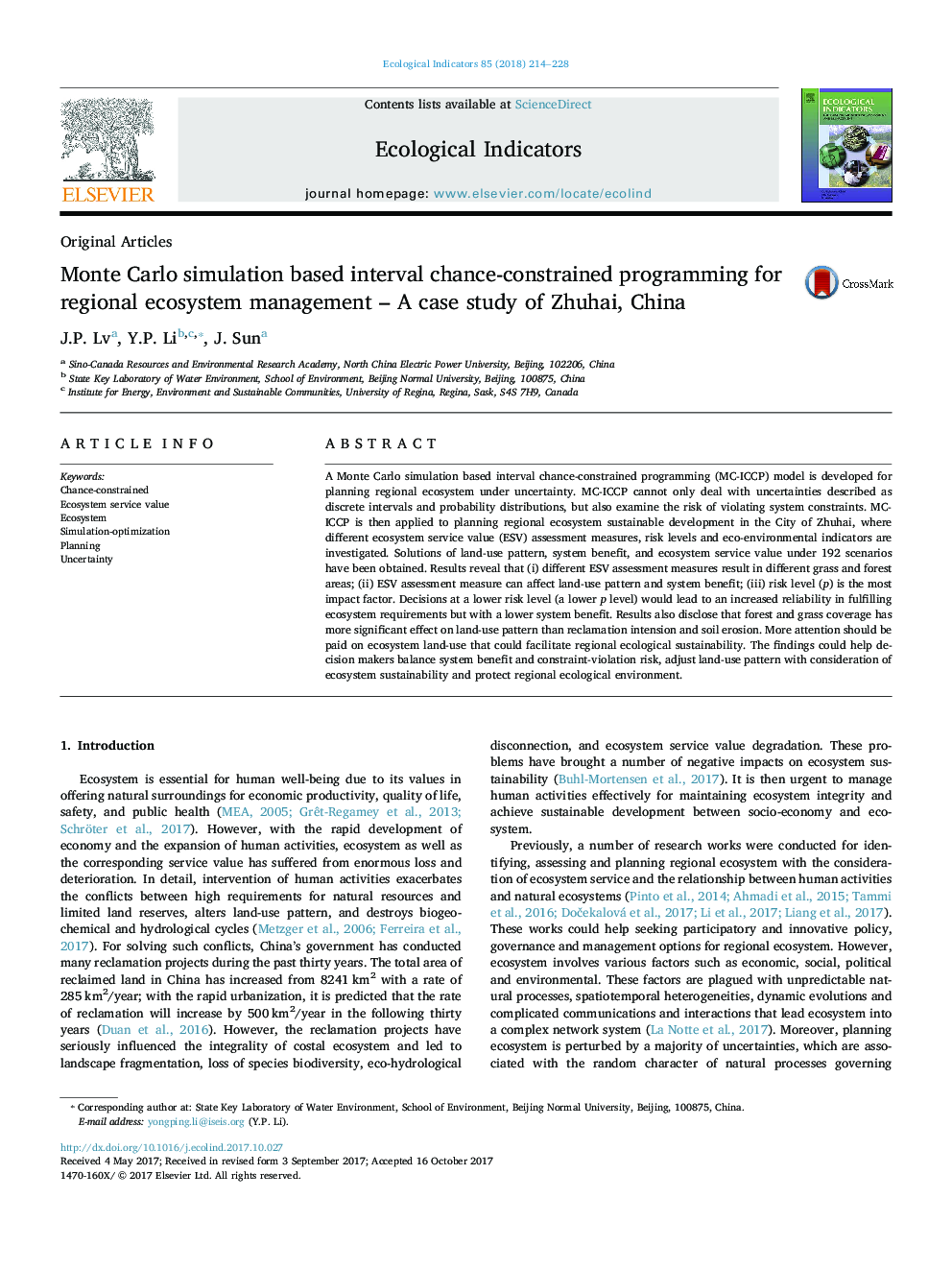| Article ID | Journal | Published Year | Pages | File Type |
|---|---|---|---|---|
| 8845667 | Ecological Indicators | 2018 | 15 Pages |
Abstract
A Monte Carlo simulation based interval chance-constrained programming (MC-ICCP) model is developed for planning regional ecosystem under uncertainty. MC-ICCP cannot only deal with uncertainties described as discrete intervals and probability distributions, but also examine the risk of violating system constraints. MC-ICCP is then applied to planning regional ecosystem sustainable development in the City of Zhuhai, where different ecosystem service value (ESV) assessment measures, risk levels and eco-environmental indicators are investigated. Solutions of land-use pattern, system benefit, and ecosystem service value under 192 scenarios have been obtained. Results reveal that (i) different ESV assessment measures result in different grass and forest areas; (ii) ESV assessment measure can affect land-use pattern and system benefit; (iii) risk level (p) is the most impact factor. Decisions at a lower risk level (a lower p level) would lead to an increased reliability in fulfilling ecosystem requirements but with a lower system benefit. Results also disclose that forest and grass coverage has more significant effect on land-use pattern than reclamation intension and soil erosion. More attention should be paid on ecosystem land-use that could facilitate regional ecological sustainability. The findings could help decision makers balance system benefit and constraint-violation risk, adjust land-use pattern with consideration of ecosystem sustainability and protect regional ecological environment.
Keywords
Related Topics
Life Sciences
Agricultural and Biological Sciences
Ecology, Evolution, Behavior and Systematics
Authors
J.P. Lv, Y.P. Li, J. Sun,
